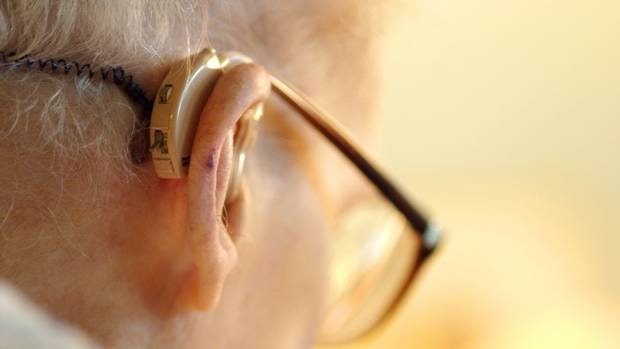hearing loss
Hearing loss linked to risk of dementia
People who lose their hearing are at an elevated risk of developing Alzheimer’s disease and other forms of dementia, a new study shows. In fact, researchers calculate that about one-third of dementia risk can be explained by hearing loss, even though the connection is rarely considered.
What is not clear though, Dr. Lin said, is whether there is are changes in the brain that simultaneously affect both memory and hearing, or whether the social isolation that often follows hearing loss speeds the onset of dementia.
Regardless, he said the findings are exciting because they suggest that hearing loss could be an early warning sign of dementia and that something as simple as fitting a person with hearing aids might delay the onset of the debilitating illness.
The study, published in the Archives of Neurology, involved 639 people aged 36 to 90 participating in the Baltimore Longitudinal Study on Aging, a long-term research project that has been ongoing since 1990.
At the outset, 455 of participants had normal hearing, 125 had mild hearing loss (hearing 25 to 40 decibels less than others), 53 had moderate hearing loss (41 to 70 decibels) and six had severe hearing loss (more than 70 decibels).
None of the participants had dementia at the beginning of the study period.
Between 1990 and 2008, volunteers underwent annual medical examinations, which included tests of hearing and cognitive ability.
During the study period, 58 of the participants developed dementia, including 37 cases of Alzheimer’s disease.
Researchers found that those with hearing loss at the beginning of the study were far more likely to develop dementia. Furthermore, the more severe the hearing loss, the greater the risk of dementia.
For example, those with severe hearing loss were five times more likely to develop dementia than a person with
normal hearing, while those with moderate hearing loss had a three-fold increase and those with mild hearing loss were twice as likely.
Stated another way, for every 10 decibels of hearing loss, the risk of dementia increased by about 20 per cent.
In the paper, the researchers caution that they have identified an association, and it is not clear if there is a cause-and-effect relationship between hearing loss and dementia.
It is possible that dementia may be over-diagnosed in individuals with hearing loss, or those with cognitive impairment may be over-diagnosed with hearing loss. The two conditions may also share an underlying neuropathological process.
Another theory is that social isolation – and the reduction in sensory activity that follows – of those with hearing loss may exacerbate symptoms of dementia. The researchers noted that those who used hearing aids saw no reduction in their risk of dementia.
Approximately 500,000 Canadians are currently living with Alzheimer’s and related dementias, and that number expected to exceed 1.1 million within a generation.
Dementia cost the Canadian economy about $15-billion last year, and that number is expected to soar to $153-billion by 2038.

